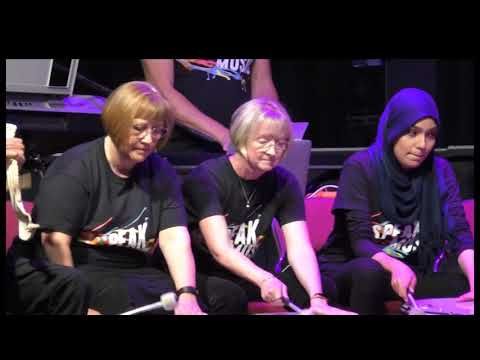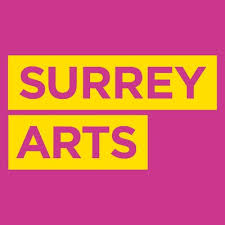|
The I Speak Music community orchestra is a wonder. It must be a rare thing - an orchestra which thrives not only on its very mix of nationalities, ages and cultures, but also on the different abilities of its players? It is an entirely levelling experience - a shared endeavour where there is simply no space for labels declaring political status or ethnocultural background, nor for restraints created by language difference. I sat with my santoor (which I don’t really play) and my clarinet (which I do) between H on the oud and M on the Eritrean kraa, and was utterly struck by the uniqueness of the moment: when we played not one of us was out of place, for any reason... There is so much written on the healing power of music, and particularly so during this Refugee Week, as people throw open the doors to their projects of welcome, many of which are rooted within the creative arts. When you see how much is being done and by so many, in order to hold out hands to people in search of safety, there is some cause for reassurance and optimism, and what a relief that is. However, of course Refugee Week does bring reminders - the pain and devastation of forced dislocation and the difficulties of resettlement are caught under its fleeting spotlight. The ISM orchestra does reflect this in part, but it is not just about welcome, and it is not merely a response to plight. This is not a “refugee orchestra”; there is no "othering", nothing of them and us division of legal status. The “healing power” of music is right there, but it does not discriminate. When our attention is drawn to the horrific brutalities of dislocation and flight, we may be reluctant to see our own difficulties as anything other than incomparable irrelevances, but worries, fears, anxieties afflict us all, and while they come in different shapes and magnitudes, each one requires acknowledgement. When we play together, this recognition is given, equally and wordlessly; with empathy and mutual compassion. The ISM orchestra is an awful lot of fun, but it is also much more than its sum of musical harmonies. It offers sanctuary in layers; a liminal space to which everyone belongs in equal force and footing, and one which does not just reach out to the complexities of the refugee context, but to anyone who feels that somehow the world is precarious, and their hopes for it are no longer assured. On speaking about her experience as a performer in the camp orchestra at Theresienstadt, Alice Herz Sommer said “When we can play, it can't be so terrible. The music, the music…" (The Lady In Number Six, 2013) It is exactly this moment that the ISM has harnessed and we are all, every one of us, much the better for it. All our thanks to Jim Pinchen, Surrey Arts and everyone else for letting us be part of this, to Richard for building the Eritrean kraas, and to our M, who said he couldn't play it, when he really, really can.
|
PrivacY | SAFEGUARDING | contacT
PO Box 1544, Woking, GU24 8UH
[email protected]
UK Registered Charity Number: 1181180
Copyright © 2022
[email protected]
UK Registered Charity Number: 1181180
Copyright © 2022




 RSS Feed
RSS Feed